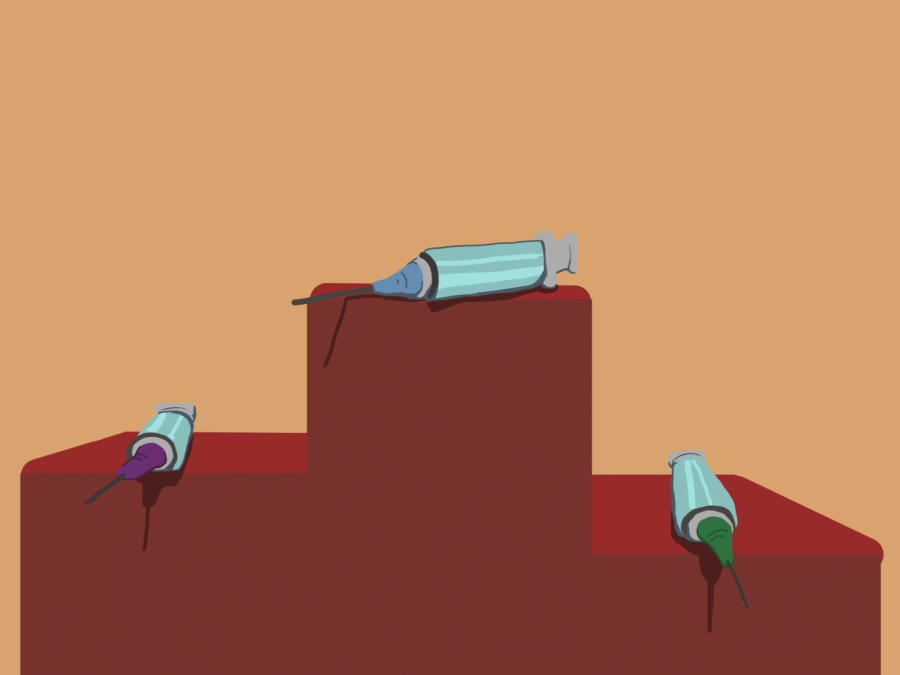The Great Vaccination Race
Countries’ lack of desire to collaborate on a COVID-19 vaccine is putting us all at risk.
October 4, 2020
Many people thrive off competition, driven by being the very best. It seems as though many countries behave similarly. The space race, for example, was the period with the most technological innovation across myriad fields and industries for both the Soviet Union and the United States. At what point, however, is the competition too much?
At a time when every nation should be working together for the common good of humanity, we see some global leaders more withdrawn than ever. Every country is worried about being the first to create the COVID-19 vaccine, rather than being concerned with what truly matters—actually developing the vaccine. History won’t remember which country was a week earlier in releasing the vaccine; history will remember this as a period of calamity and turmoil, only worsened by the lack of international scientific collaboration. Science and innovation is more efficient and of a higher quality when the research is multinational. The differences in training, talent pools, backgrounds, and general understanding of science and its integration within our society are a benefit, not a loss.
Unfortunately, most nations seem to disagree with this, instead choosing to succumb to their competitive instincts and prioritize winning. The UK, for example, accused Russia of trying to steal the UK’s vaccine research. Russia put its residents in severe danger by releasing a barely-tested, not peer-reviewed vaccine.
The United States isn’t innocent either. It’s removed funding from the World Health Organization and refused to support the organization’s recent efforts to create a globally accessible vaccine. Is it truly “winning” if the world is in a state of catastrophe—the entire world is in a recession, tens of thousands of people are dying—and the countries with the most funding and access to research aren’t helping each other, simply in the name of being “first” or “the best?”
This seems to confirm that first-world nations care solely about their own personal gain and will prioritize their profit and hegemony, even if this behavior engenders thousands upon thousands of deaths across the globe. How can the United States—or any country, for that matter—claim to be the land of opportunity when it limits the opportunity to discover a vaccine? It’s not always necessary to be the first or the best. Sometimes, the only important thing is to finish a task as quickly, efficiently, and thoroughly as possible, no matter if that means swallowing your pride to accept or give help.
International competition may have put humans in space and led to widespread access to the miraculous technology of the internet, but ultimately, competition should be an afterthought when it comes to innovations that are critical to the well-being of humanity.


